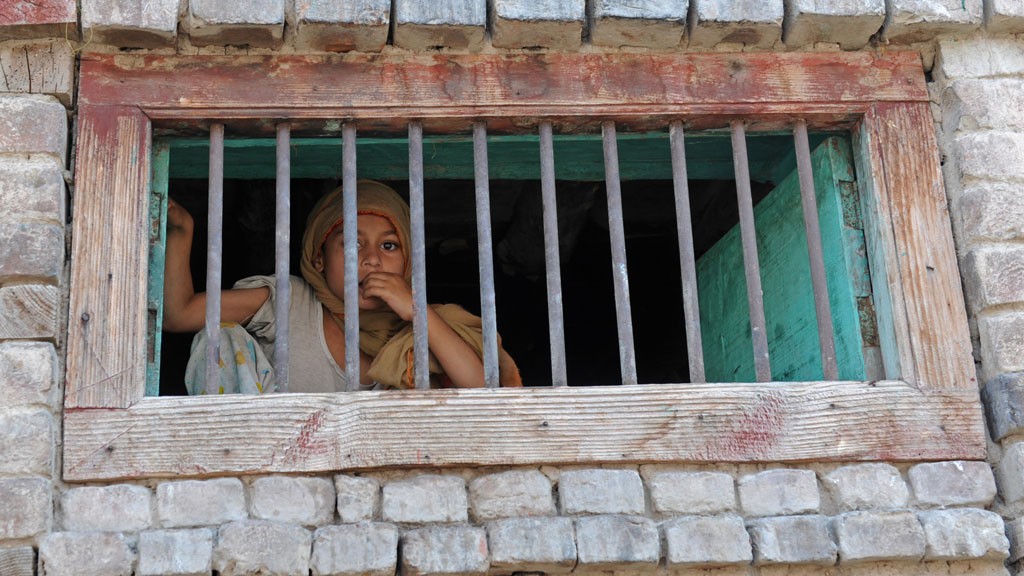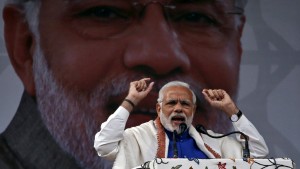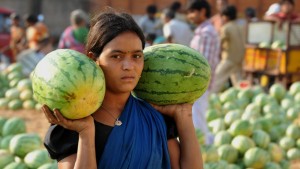Religious intolerance in India: Tough times mostly for women
These are difficult and troubled times in India. What began as a trickle of protests has now assumed huge torrents. A number of Indian authors have returned their literary awards to protest against rising religious intolerance in the country.
Writers, artists, scientists, historians and filmmakers in the South Asian nation have openly slammed the government of Prime Minister Narendra Modi, accusing it of contributing to the “highly vitiated” atmosphere prevailing in the country.
“Over the past two years, in particular, there has been an increasing sense that the space for liberal discussion in the country is becoming narrower,” says renowned historian Romila Thapar.
Intellectuals cite repeated instances of banning books as well as threats and assassinations in the recent months as a sign of growing attempts by right-wing fringe elements to curtail freedoms and impose their ideologies on others. Is Prime Minister Narendra Modi’s politics emboldening the hardliners? The answer is obviously – Yes.
The fact that women have always had it hard in India is not new. Sexual violence, rape, female feticide, harassment in work places, acid attacks, and voyeurism are just some of the violations staring at them and which they have to counter on a regular basis.
Now, they encounter another depressing scenario. Religious intolerance.
So was it a surprise that film superstar Aamir Khan spoke up on the “intolerance” debate and shared what he called his growing disquiet over a number of incidents this week?
“When I chat with Kiran (his wife -ed) at home, she says, ‘should we move out of India?'” That’s a disastrous and big statement for Kiran to make. She fears for her child. She fears what the atmosphere around us will be. She feels scared to open the newspapers every day,” said the super star.
That obviously indicates there is this sense of growing disquiet, there is growing despondency apart from alarm.
His comments touched off a storm.
But leading up to these disquieting events have been attacks on women, who have become the brunt of attacks of the moral and hard-line Hindu squads.
Love jihads of all things are a bogey, an invention of the right-wing organizations that use a wide variety of methods – “violence, intimidation, emotional blackmail, duplicity and drugs” – to split up Hindu-Muslim couples.
There are enough Indian Hindu women to testify who are branded victims of ‘love jihad’, by right wing groups despite the fact that not a single woman they claimed to have rescued ever sought their help.
“They (vested groups) file fake rape and kidnapping cases against Muslim youth who elope with or marry Hindu women. It is not true. It is done on one’s volition,” exclaims Maneesha Sethi, who ran away with her Muslim boyfriend, Salim.
It is happening and in many ways surreptitiously which has not got enough media publicity.
In the central state of Madhya Pradesh and in a shocking incident, a minor Dalit (untouchable caste) girl was allegedly ‘thrashed’ by higher caste persons after the victim’s shadow fell on a muscleman belonging to their family.
The problem began when the girl was fetching water from a village hand pump and her shadow fell on muscleman Puran Yadav (belonging to a higher caste) when he happened to pass from there.
The episode enraged the family of the muscleman to such an extent that the women of the family severely beat the girl and threatened that if she was spotted again at the hand pump, they would kill her.
If that was not enough, a famous college in Kolkata, Scottish Church, prescribed dress code for girls. The college also banned short skirts, slit skirts and round-neck t-shirts.
The decision of the college authorities’ sparked controversy as students of the college expressed their disappointment with the prescribed dress code. The freedom to be who you really are is paramount, and clothing is only a single avenue of expression.
Tough times. Yes. Tensions between communities are rising. And the women are taking the hit.
Author: Murali Krishnan
Editor: Marjory Linardy
WTO RECOMMENDS
Muslim, non-Muslim
Six-year-old: Look Dad, I made a temple with LEGO, just like the one I visited with Ma!” Dad: “Don’t make a temple dear. Construct a mosque.” Six-year-old: “But why? Why not a temple?” This was a conversation between a six-year old and her Pakistani father residing abroad. This was a conversation reflecting the fear of losing one’s sense of self… (From August 29, 2013)
Atrocities on women in India: ‘It’s not just a gender problem.’
In the backdrop of the numerous reported cases of rapes, gang rapes and widely visible discrimination against women in India, the German author, artist and social worker Dr. Katharina Poggendorf-Kakar spoke about the India-specific form of such violent acts. Dr. Poggendorf has lived in India since 2003 and travelled extensively through India to understand the basis of such atrocities on women. (From July 14, 2015)
Will the women in India’s parliament make a difference?
On May 26, 2014, Irani, one-time model and popular television actress, took oath as a minister in Prime Minister Narendra Modi’s cabinet. Her spectacular rise until now indicates the impact she has had within the Bharatiya Janata Party (BJP). Irani is among the 61 women members out of a total of 543 Members of Parliament who represent their constituencies in India’s Lower House of Parliament, the Lok Sabha. (From June 17, 2014)









